Much has been achieved since the foundation of the Institute in 2019.
The Institute of Medicine (IOM) was established in 2019 to enhance the oversight and practice of the 18 clinical medicine specialties in Ireland through education, advocacy, and quality improvement. It was officially launched on 20 January 2020. Much has been achieved in the five years since the formal structure was agreed by the RCPI Council.
Under the Direction of the Foundational Dean, Prof Anthony O’Regan, supported by the board, the Institute has been steadfast in its commitment to redefine, grow, and advance training and education, giving due consideration to the training environments and delivery. Some 1,600 basic specialist trainees (BST) and 800 higher specialist trainees (HST) have passed through the Institute. They are supported by over 900 trainers, as well as national specialty directors and regional programme directors across 36 training sites.
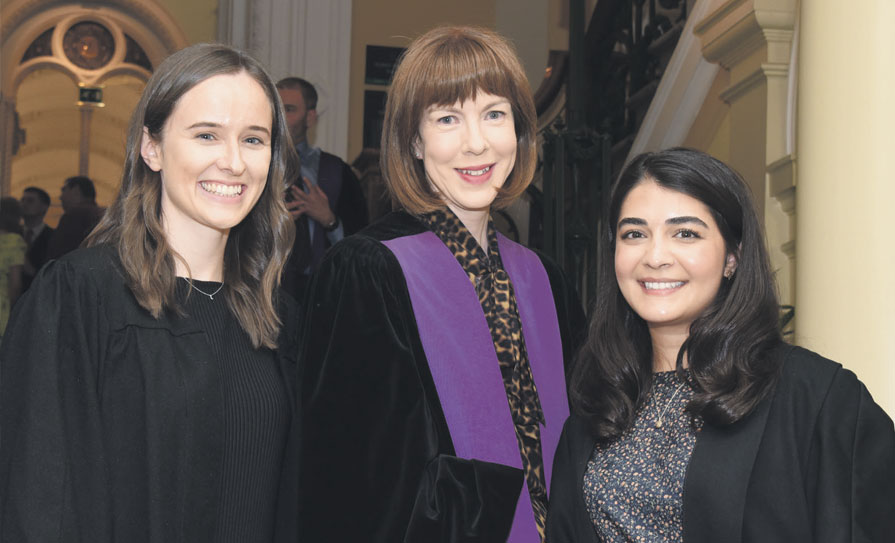
Dr Mary Clare McKenna; Dr Lisa Costello; and Dr Murva Asad
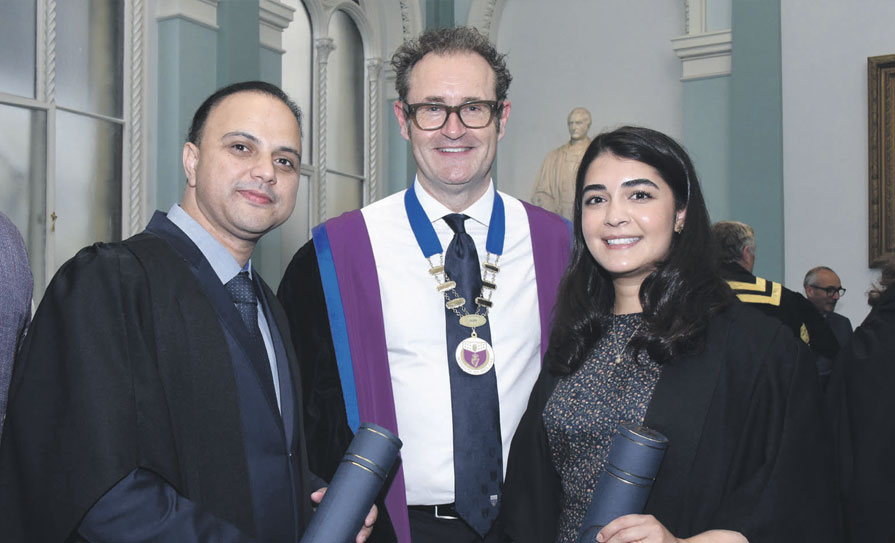
Dr Imran Ali; Prof Edward McKone; and Dr Murva Asad
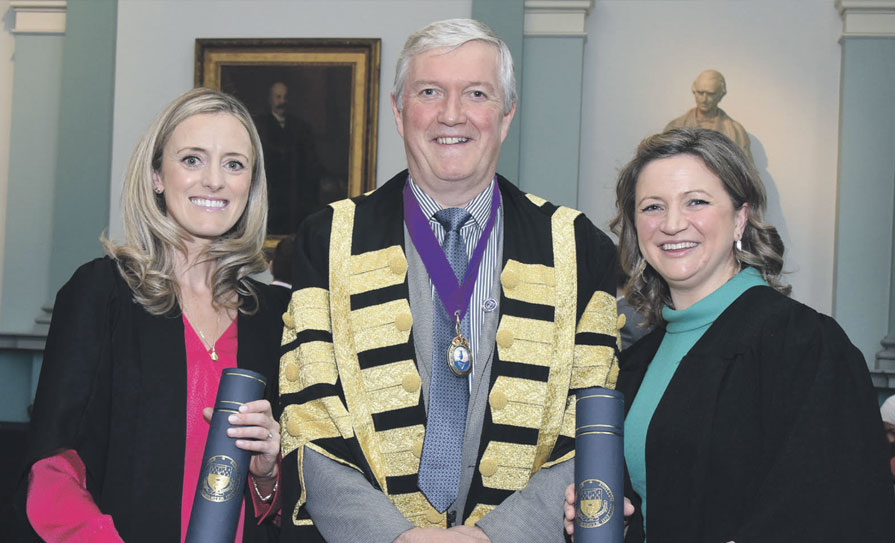
Dr Laura Gaffney; Dr Diarmuid O’Shea; and Dr Sheena Geoghegan
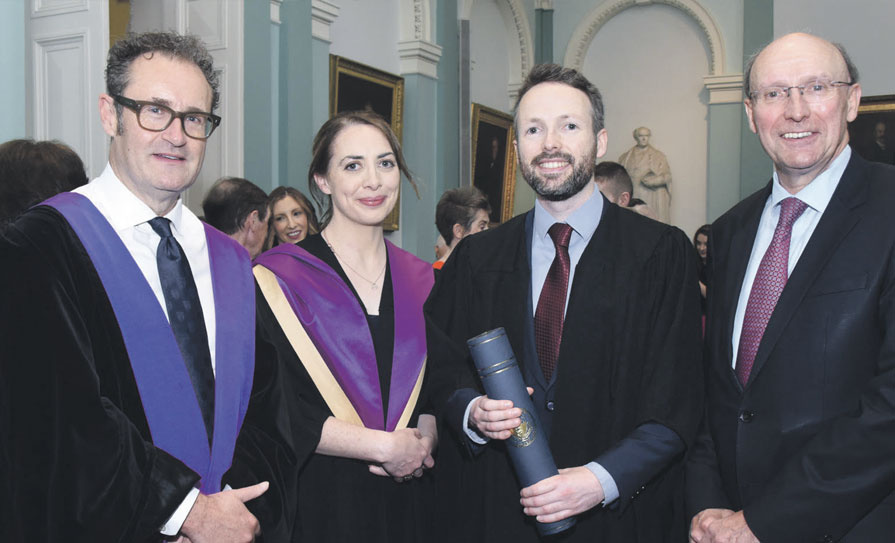
Prof Edward McKone; Dr Orlaith Kelly, National Specialty Director, Gastroenterology; Dr Robert Varley;
and Mr Martin Varley, former Secretary General, IHCA
Training numbers have grown significantly, particularly in HST where numbers have risen by 40 per cent and are projected to increase by a further 25 per cent by 2030. Similar growth has been delivered in examinations and four new clinical examination centres in Ireland. The global Covid-19 pandemic unfolded within weeks of the Institute being established, but it understood its vital role in minimising disruption for the training and education of clinical medicine doctors working on the frontline during this time.
Doctors were able to access the relevant professional development opportunities without impediment through innovative approaches to end-ofyear assessments and interviews, as well as lifelong learning opportunities delivered online. As RCPI was the first postgraduate training body to move to remote invigilation, MRCPI candidates in general medicine were enabled to sit their exam online from June 2020. The IOM also established a weekly online lecture series on Covid-19, providing real-time updates as information about the virus was unfolding at an unprecedented pace.
Local and international clinicians and scientists, many of whom are members and Fellows of the RCPI, provided the updates and the series achieved record global engagement, with over 20,000 people tuning into the live webinars and watching via playback across the series. The Institute continues to bring research and clinical advances and insights to its membership through the webinar series, ‘Hot Topics for Acute Physicians’. Delivered in partnership with the professional societies, the series aims to improve the scope and access to professional development sessions in line with Medical Council guidelines.
Speakers at the webinar series and the Institute’s symposia provide expert insights on topics such as artificial intelligence in medicine, advancements in training and assessments, and specialty-specific knowledge, such as progress in stem cell research. Continually evolving to deliver world-leading training and education, significant progress has been made in identifying future needs in healthcare delivery and training and designing and implementing advancements through curriculum redesign and training innovations.
“The IOM also established a weekly online lecture series on Covid-19, providing realtime updates as information about the virus was unfolding at an unprecedented pace”
The in-depth review of general internal medicine (GIM) – OPTIMISE – delivered 26 recommendations, informed by international best practice and evolving standards of training in internal medicine, to define GIM training that will provide a solid foundation for the Irish healthcare system into the future. Another key area of focus is the development of the Irish Clinical Educator Track (ICET) to develop a national programme to provide training and a pathway to a career in postgraduate medical education in Ireland.
“The global Covid-19 pandemic unfolded within weeks of the Institute being established, but it understood its vital role in minimising disruption for the training and education of clinical medicine doctors working on the frontline during this time”
The programme has three main components: Teaching theory, teaching practice, and research, and is open to specialty registrars from all specialties. The programme is supported by funding from HSE National Doctors Training and Planning (NDTP). The first two ICET trainees commenced their first year of the programme in July 2023 and shared their experiences at the Winter Symposium in January 2024. They are now entering their second year and four additional trainees commenced their first year on the programme in July 2024.
With a renewed focus on clinical simulation, the pointof- care ultrasound (POCUS) pilot is an exciting programme commencing in two regional health areas in 2024. The POCUS project aims to train consultant physician trainers in POCUS, a new model which will provide a mentoring and blended training programme (e-learning, simulation-based education, on-site training). These trained physicians will then provide mentorship and guidance in training their NCHDs in POCUS going forward.
Prof Anthony O’Regan completed his term as Dean of the Institute of Medicine during the Annual General Meeting on Friday, 21 June 2024. He now takes on the role of Medical Director of NDTP, replacing Prof Brian Kinirons. Prof Edward McKone was formally presented with the Dean’s Medal during the Institute’s conferring ceremony later that day and takes on the role of Dean of the Institute of Medicine for a three-year term. Prof McKone, as Director of Training and Education at IOM since 2019, has been instrumental in the Institute’s success to date and we wish him well in his new role.
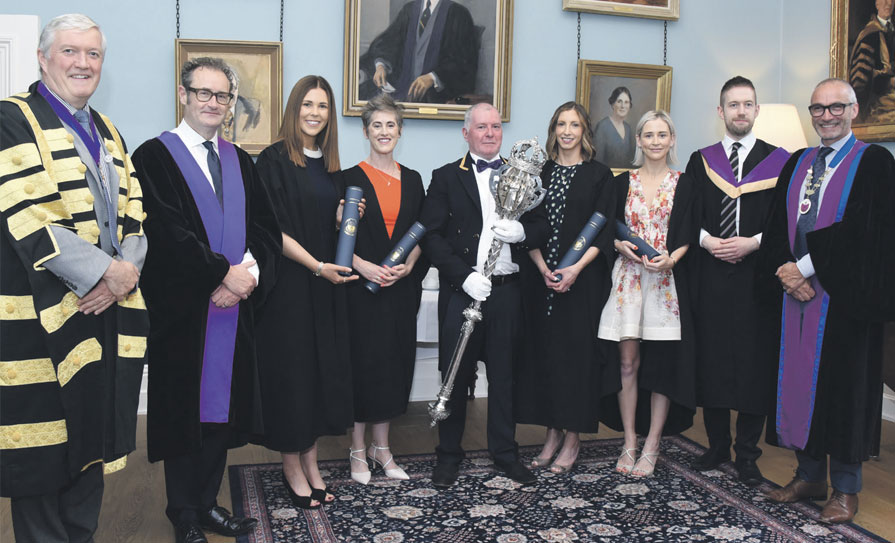












Leave a Reply
You must be logged in to post a comment.